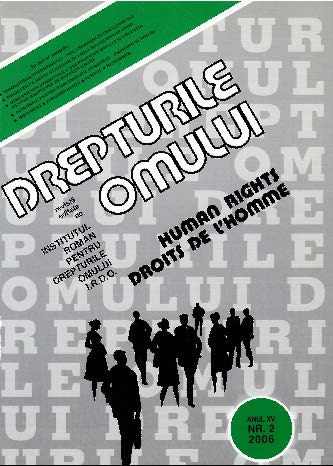Categorii de obligații ce revin statelor în urma hotărârilor de condamnare pronunțate de Curtea Europeană a Drepturilor Omului
Categories of obligations incumbent on States as a result of conviction pronouncements passed by the European Court of Human Rights
Author(s): Titus CorlățeanSubject(s): Human Rights and Humanitarian Law, Court case
Published by: Institutul Român pentru Drepturile Omului
Keywords: European Court of Human Rights; Committee of Ministers; execution of the pronouncements of ECHR; competence;
Summary/Abstract: The study deals with the carrying into execution of the pronouncements of ECHR, focusing on the specific mechanisms, particularly the role and functions of Council of Europe's Committee of Ministers. Protocol 14 to the European Convention comes up with several important novelties related to the control mechanism, including introduction of the 'substantial prejudice suffered by the petitioner' among the criteria for admissibility of the complaint and the Committee of Ministers' competence to intimate the Court in case of failure to carry into execution a Court's decision by the respective State. The Committee has the sovereign competence to evaluate the way a decision has been carried into execution and, eventually, to irrevocably close the case. The Committee's action belongs with the jurisdictional but also with the political by means of the constant and progressive pressure put on the “guilty” State. However, one can feel the lack of a set of gradual sanctions, more precisely the lack of some intermediate links between the starting point and the maximum sanction consisting in suspending or withdrawing the status of member of the Council of Europe, as well as the need for reforms in this respect.
Journal: Drepturile omului
- Issue Year: 2006
- Issue No: 2
- Page Range: 21-33
- Page Count: 13
- Language: Romanian

